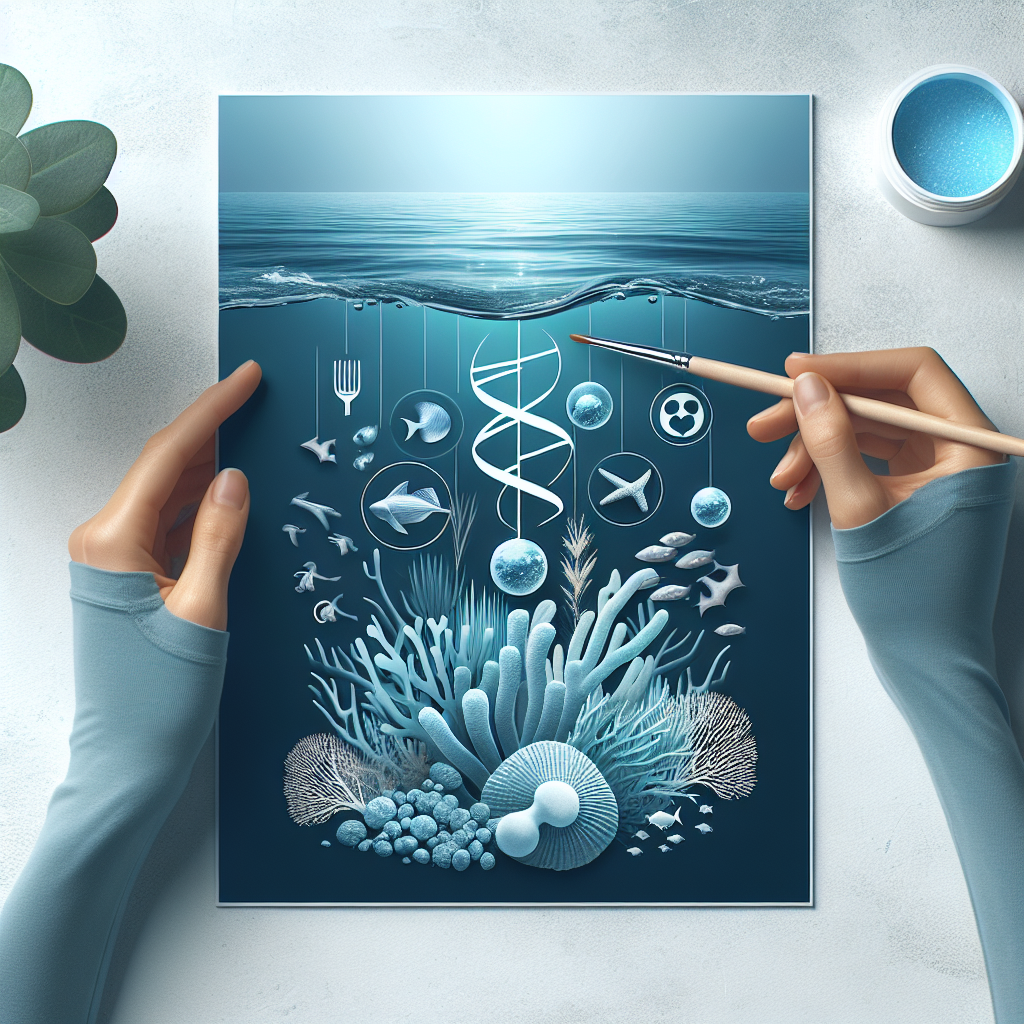
Marine Collagen: A Sustainable Source of Protein
Share
Marine Collagen: A Sustainable Source of Protein
What is Marine Collagen?
Marine collagen is a type of protein derived primarily from the skin and scales of fish. Unlike bovine or porcine collagen, marine collagen is known for its smaller particle size, making it highly bioavailable and easily absorbed by the human body. As more people seek environmentally conscious wellness products, sustainable marine collagen has gained popularity as a nutrient-packed and eco-friendly solution.
Why Choose Sustainable Marine Collagen?
The global demand for collagen has traditionally been met through livestock, leading to various environmental impacts such as greenhouse gas emissions, land use, and waste production. Sustainable marine collagen is sourced from fish by-products that would otherwise be discarded, therefore supporting circular economies and reducing food waste. By harnessing the potential of marine resources responsibly, we can enjoy the benefits of collagen without compromising the planet’s health.
The Benefits of Sustainable Marine Collagen
There are numerous advantages to choosing sustainable marine collagen for your health and beauty routines. Some of the most noteworthy include:
- Superior Bioavailability: Marine collagen is composed mainly of type I collagen, which is the most abundant in the human body. Its small peptide molecules are readily absorbed, delivering benefits quickly and efficiently.
- Supports Skin, Hair, and Nails: Regular consumption supports skin elasticity, hydration, and firmness, while strengthening hair and nails from the inside out.
- Joint and Bone Health: Marine collagen supports connective tissue repair and can help reduce joint pain and inflammation, maintaining mobility as we age.
- Promotes Gut Health: The amino acids in marine collagen can help strengthen the gut lining, supporting digestive health.
- Sustainable Sourcing: Choosing sustainably sourced marine collagen helps prevent unnecessary waste in the fishing industry and supports marine ecosystems.
How is Sustainable Marine Collagen Produced?
Sustainable marine collagen production involves sourcing collagen from the parts of fish that are commonly discarded during seafood processing, such as skin, scales, and bones. Instead of letting these nutrient-dense parts go to waste, responsible manufacturers process them into high-quality collagen protein using advanced hydrolysis techniques. This not only drastically reduces food waste but also lessens the environmental burden of relying on land animals for protein. Look for certifications and transparent supply chains to ensure your marine collagen comes from reputable, sustainable sources.
Comparing Marine Collagen to Other Collagen Sources
Understanding the differences between marine collagen and other types is essential when considering your environmental and health impact.
- Bovine Collagen: Sourced from cows, this type of collagen is well known but has a higher carbon footprint due to the environmental impact of livestock farming.
- Porcine Collagen: Derived from pigs, this collagen also raises concerns about land use and greenhouse emissions.
- Marine Collagen: Offers a lower ecological footprint, is often odorless and tasteless, and is friendly to pescatarian diets.
Clearly, sustainable marine collagen stands out for those wishing to make ethical, eco-friendly choices without sacrificing benefits.
Incorporating Marine Collagen Into Your Routine
Marine collagen is incredibly versatile and can be easily added to your daily regimen. Here are some easy ways to enjoy its benefits:
- Mix it into smoothies or protein shakes for a nutrient boost.
- Add it to your morning coffee or tea—hydrolysed marine collagen dissolves easily and is virtually tasteless.
- Blend into yogurt, oatmeal, or soups.
- Use it as part of your post-workout recovery to support muscle repair and joint health.
Simple integration makes sustainable marine collagen a convenient and impactful addition to a healthy lifestyle.
Why Choose Hydrolysed Collagen Protein Powder?
Hydrolysed marine collagen protein powder offers maximum absorption due to its low molecular weight peptides. This means your body can utilize the amino acids more effectively, leading to faster and more noticeable benefits. Hydrolysed collagen is also gentle on the digestive system, making it suitable even for those with sensitive stomachs.
Our Top Recommendation: Pure, Sustainable Marine Collagen Powder
If you’re looking to embrace sustainable marine collagen in your routine, consider choosing a high-quality, responsibly sourced product. We recommend the Marine Collagen Powder - Hydrolysed Collagen Protein. This product features pure, unflavoured marine collagen peptides that are sustainably harvested from fish. It’s formulated to support healthy skin, hair, nails, joints, and digestive function, all in an eco-conscious way.
- Unflavoured and easy to mix without altering the taste of your favorite foods or drinks.
- Contains 3g of protein per serving, making it a perfect daily addition to meet your protein needs.
- Packaged responsibly to minimize environmental footprint.
- Free from artificial additives, ensuring purity and potency in every scoop.
By choosing this trusted marine collagen, you’re not just treating your body well—you’re also supporting sustainable manufacturing practices that value our planet’s health.
Conclusion
Sustainable marine collagen offers a powerful combination of health benefits and environmental responsibility. From skin and joint health to its positive ecological impact, it sets a new standard for those seeking a protein supplement that aligns with ethical and wellness goals. By making informed choices—like selecting the Marine Collagen Powder - Hydrolysed Collagen Protein—you can nourish your body and support a more sustainable future.
Meta description: Learn why sustainable marine collagen is the eco-friendly protein choice for your health. Discover benefits, comparisons, and the top marine collagen powder.
